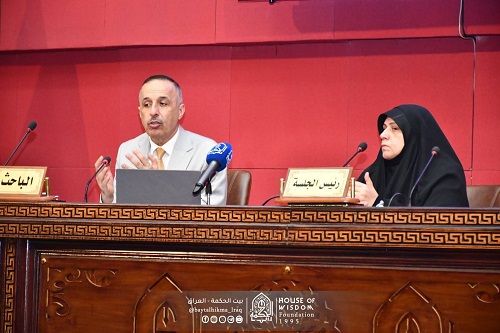|
The role of administrative judiciary in protecting public rights and freedoms
2025-08-03

The Role of the Administrative Judiciary in Protecting Public Rights and Liberties
On Thursday, July 31, 2025, the Quality Management and Institutional Development Department at Bayt Al-Hikma (House of Wisdom), organized an awareness lecture titled "The Role of the Administrative Judiciary in Protecting Public Rights and Liberties ." It targeted a group of employees of the institution.
The lecture was chaired by Engineer Halima Ali Hussein, Head of the Quality Management and Institutional Development Department, and presented by lawyer Saad Ghazi Al-Anzi from the Iraqi Bar Association.
The lecture highlighted the role of the Iraqi administrative judiciary in protecting the rights and liberties of individuals by organizing its specialized institutions to monitor administrative appartus and the work of the administration to ensure its legitimacy and respect for the rights and liberties of individuals , with emphasizing the need to achieve a balance between the public interest and these rights, as well as the importance of the judiciary as a fundamental pillar upon which the state is built.
The researcher provided a detailed explanation of the Council of State, as the highest judicial and administrative body responsible for examining cases related to public office. He also provided a detailed explanation of its role in drafting and reviewing legislation, working to achieve the rule of law, and guaranteeing the rights of individuals and institutions.
The researcher also reviewed the most important structural details of the State Council, which includes the Administrative Judiciary, the Civil Service Judiciary, and the Supreme Administrative Court, clarying the specific specializations of each entity.
Bayt Al-Hikma is keen to organize awareness lectures and training workshops targeting employees within the scientific and administrative departments of the institution to raise awareness among individuals, improving their performance, and enabling them to make informed decisions on various aspects, contributing in building more aware and sustainable societies.
|